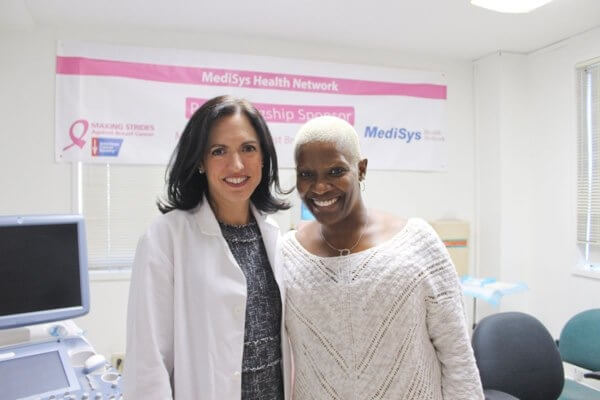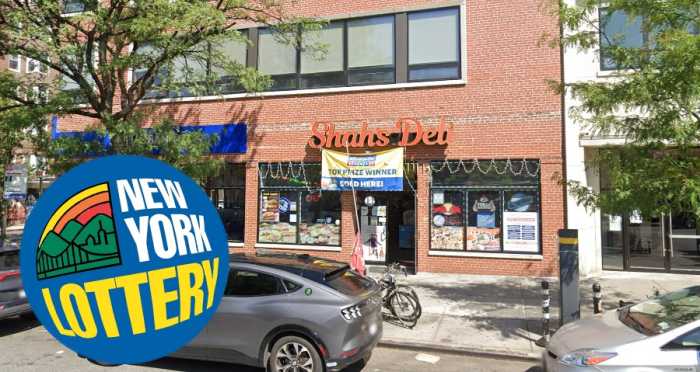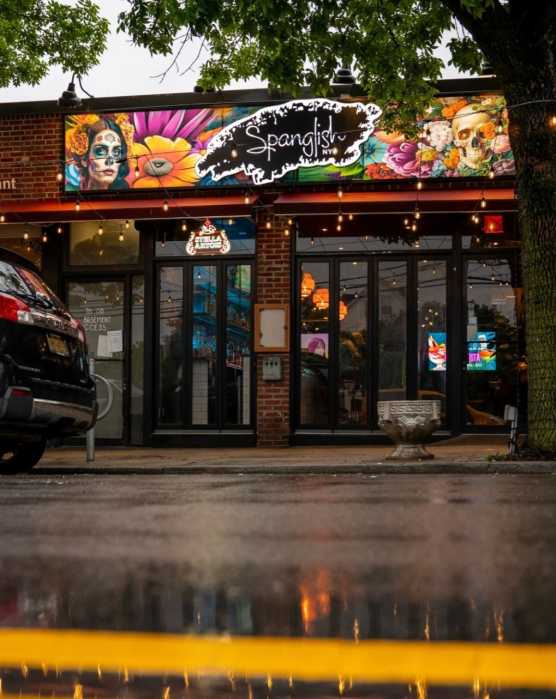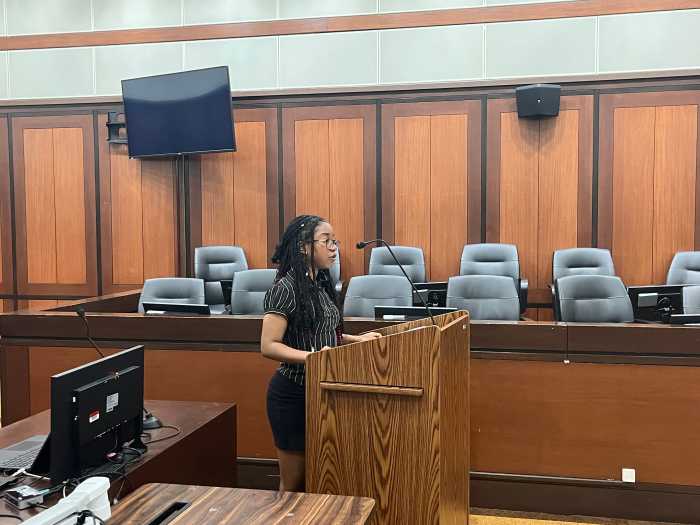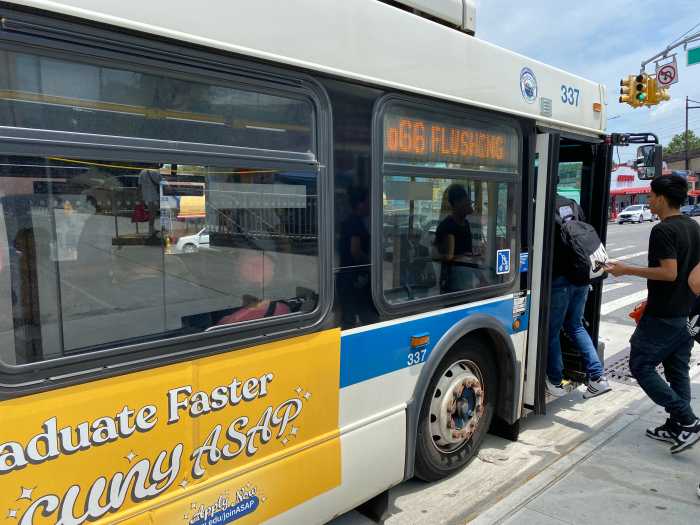By Naeisha Rose
Angela Corker, a breast cancer patient at Jamaica Hospital, is the first in the outer boroughs to experience using AeroForm, a groundbreaking, one-of-a kind, FDA-approved implant for breast reconstruction that does not require a saline injection.
Corker,46, is a Jamaica resident who worked at the hospital for 16 years as a medical assistant. She learned of her diagnosis on Aug. 7.
If it wasn’t for her 35-pound weight loss from taking up exercise two years ago and her expertise in the medical field, she might not have detected the lump she found in her right breast while taking a shower, according to Corker.
Even though only one of her breasts was cancerous, she underwent a bilateral mastectomy, which means both were surgically removed. Her mother had breast cancer three years ago and another relative was diagnosed with ovarian cancer. Since there is a family history of cancer, she is at high risk of developing it once more, and removing both breasts could prevent that from happening again.
Corker takes pride in being a caregiver and fiercely independent, but struggled at first after the diagnosis.
“I got a reality check,” Corker said. “But I had an advantage because I’ve seen a lot and I work with terrific surgeons.”
After she had her mastectomy Sept. 22, plastic surgeon Dr. Sophie Bartsich performed the breast reconstruction using the AeroForm implant.
“The regular tissue expanders we have been using until now use saline and are like an empty water balloon with a valve,” said Bartsich. “You have to prick with a needle through the skin into the valve of the implant to put the saline in. You can only expand it at a doctor’s office and you have to make multiple trips.”
This method is painful. It takes four to five months before there is a permanent implant, and the needle prick can result in an infection, according to Jamaica Hospital.
The process with the AeroForm technology is simpler, faster and safer, Bartsich explained.
“This is an air-based expander that doesn’t use any saline and it releases gas gradually in small increments,” Bartsich said. “It is completely controlled by a remote control.”
There is no needle stick involved after the surgeon places the implants inside the chest cavity wall and patients are trained in how to use the remote so they can do it themselves from home, according to Bartsich.
“Something that use to take five months now takes three weeks,” Bartsich said.
The device, which was FDA-approved in December, has no side effects and can be implanted immediately after a surgery. Since saline expanders require needle pricks that could cause infections, like staph, patients typically have to wait around six months.
“You can plan both procedures at once, or six weeks in between, and it can get you through the recovery and reconstruction process so much faster,” the surgeon said. “Patients can take ownership over themselves. It’s very empowering and no one is poking you.”
The remote even alerts the patient to when the expansion is full and plays a little music, according to the doctor. It also comes in different sizes and is covered by insurance.
“It comes in a silicone shell with a [carbon dioxide] cartridge inside that releases the gas,” Bartsich said.
AeroForm has been available in the United States since January and became available in Australia in mid-2015, according to Jennie Kim, the senior director of Global Marketing of AirXpanders, the company that produces the device.
Dan Jacobs, a Silicon Valley-based plastic surgeon, created AeroForm and was inspired to use gas implants after he fixed his bike, according to Kim.
“After a long day of seeing his breast reconstruction patients and giving saline injections, he kept thinking there must be a better way,” Kim said of Jacobs. “He was out on a bike ride and came upon the idea of using a tiny canister of compressed gas, similar to the one he carried to fix a flat tire, inside of a tissue expander.”
As Corker waits to find out what stage cancer she has, she is doing everything to maintain her health by eating better and exercising.
“I have strict greenery, lemon water, fruits, and nuts,” said Corker. “No junk food or processed food. I have baked fish.”
Bartsich said nutrition is key.
“The better you eat, the better you heal,” Bartsich said. “It’s about balance.”
She recommended prunes and an ounce of walnuts to prevent breast cancer. Protein is good, but avoid processed food. Having a little fat or sugar is fine, and don’t have junk food as an entire meal.
“Stay conscious to your body at all times,” Corker said. “[AeroForm] is probably the best thing you can partake in while you are in your recovery period. It even plays music to you.”
Reach reporter Naeisha Rose by e-mail at nrose

